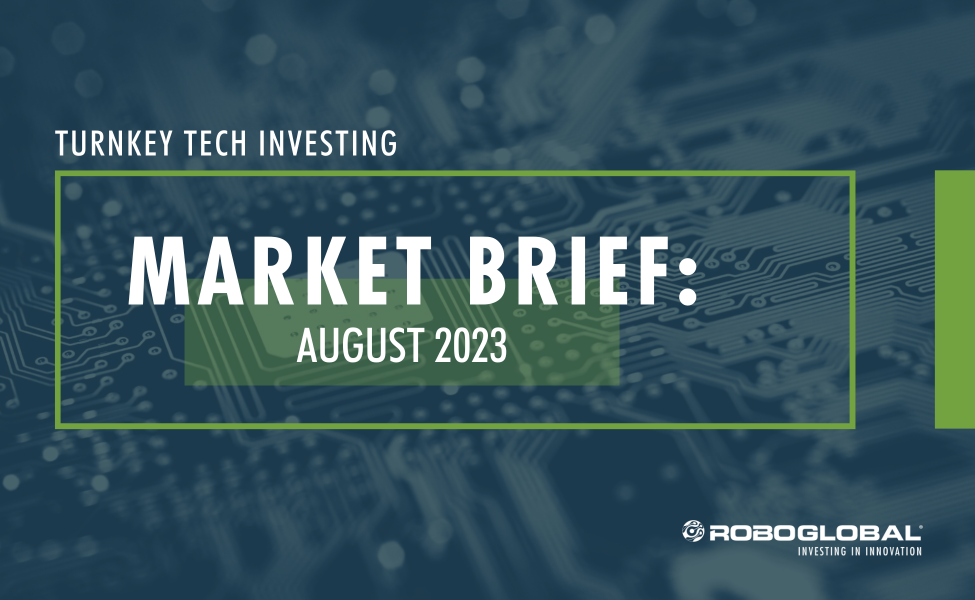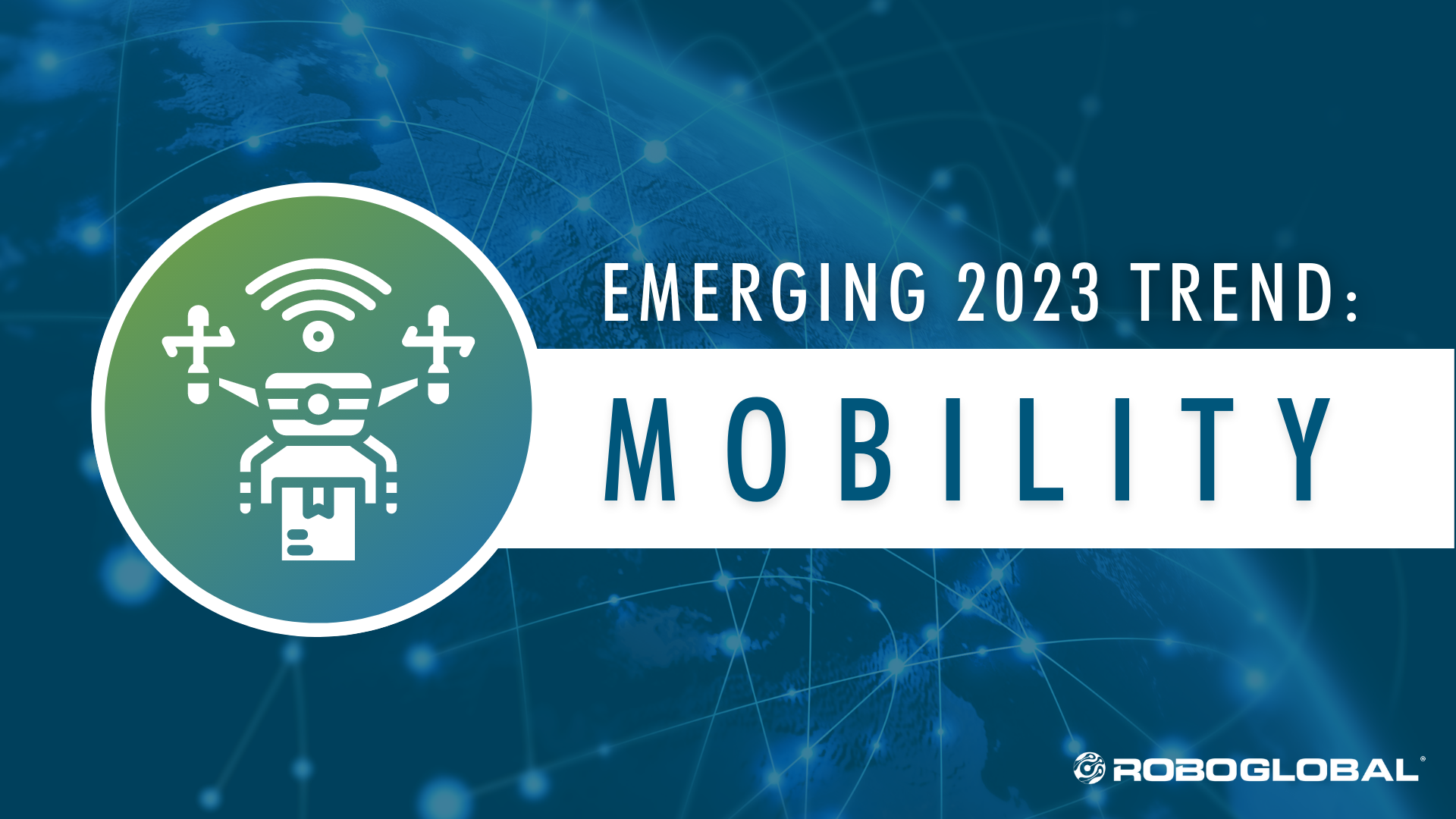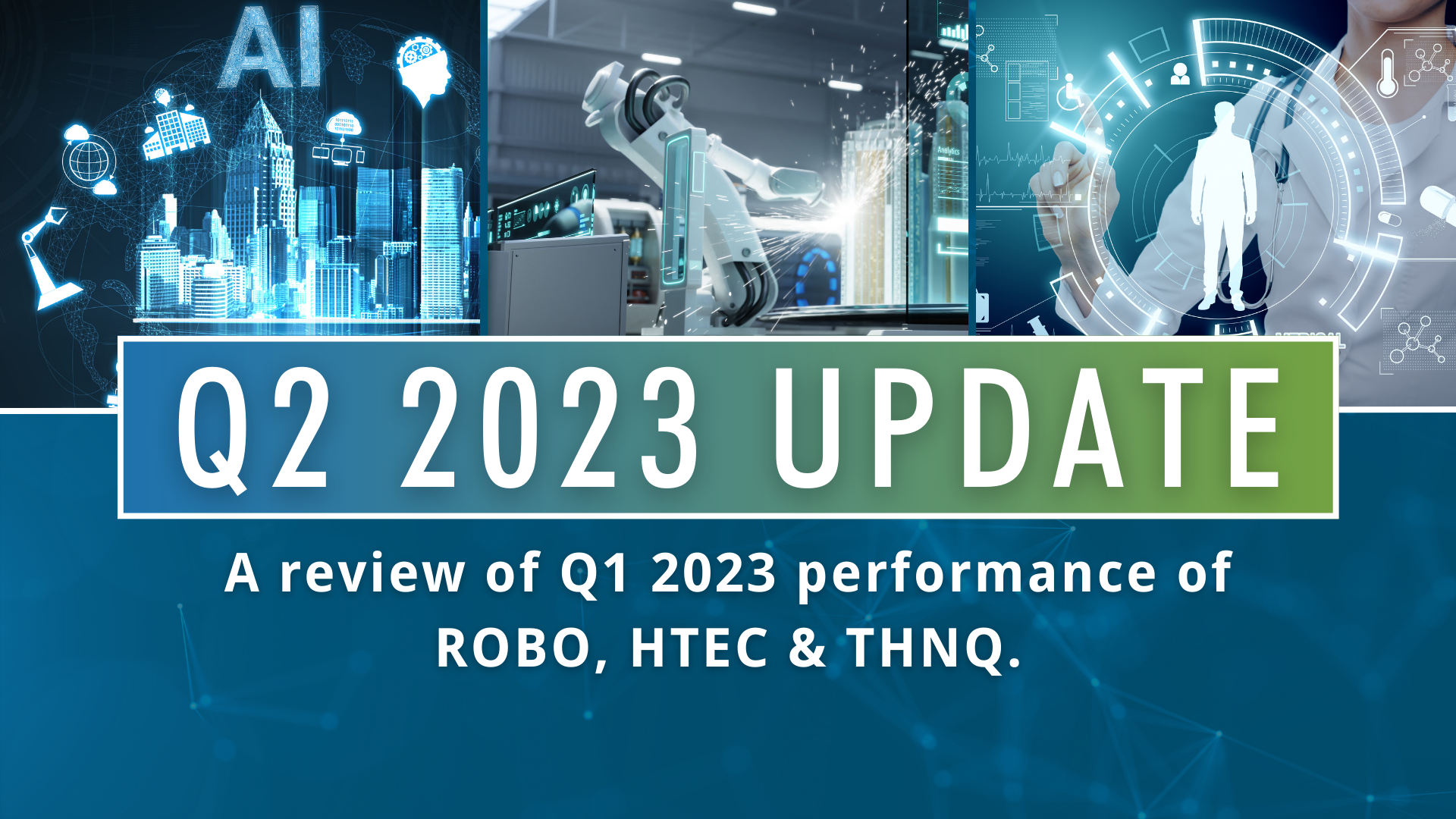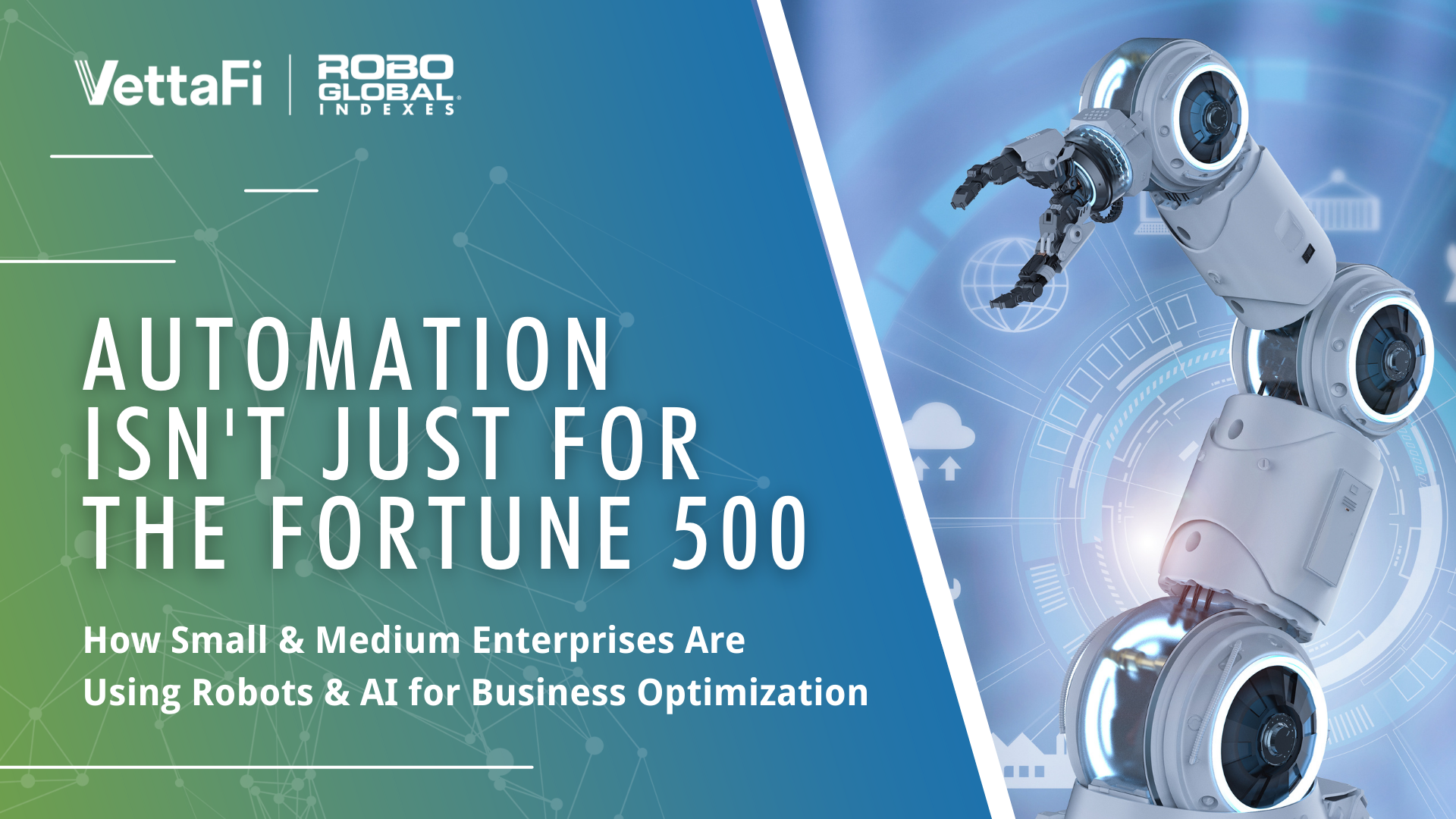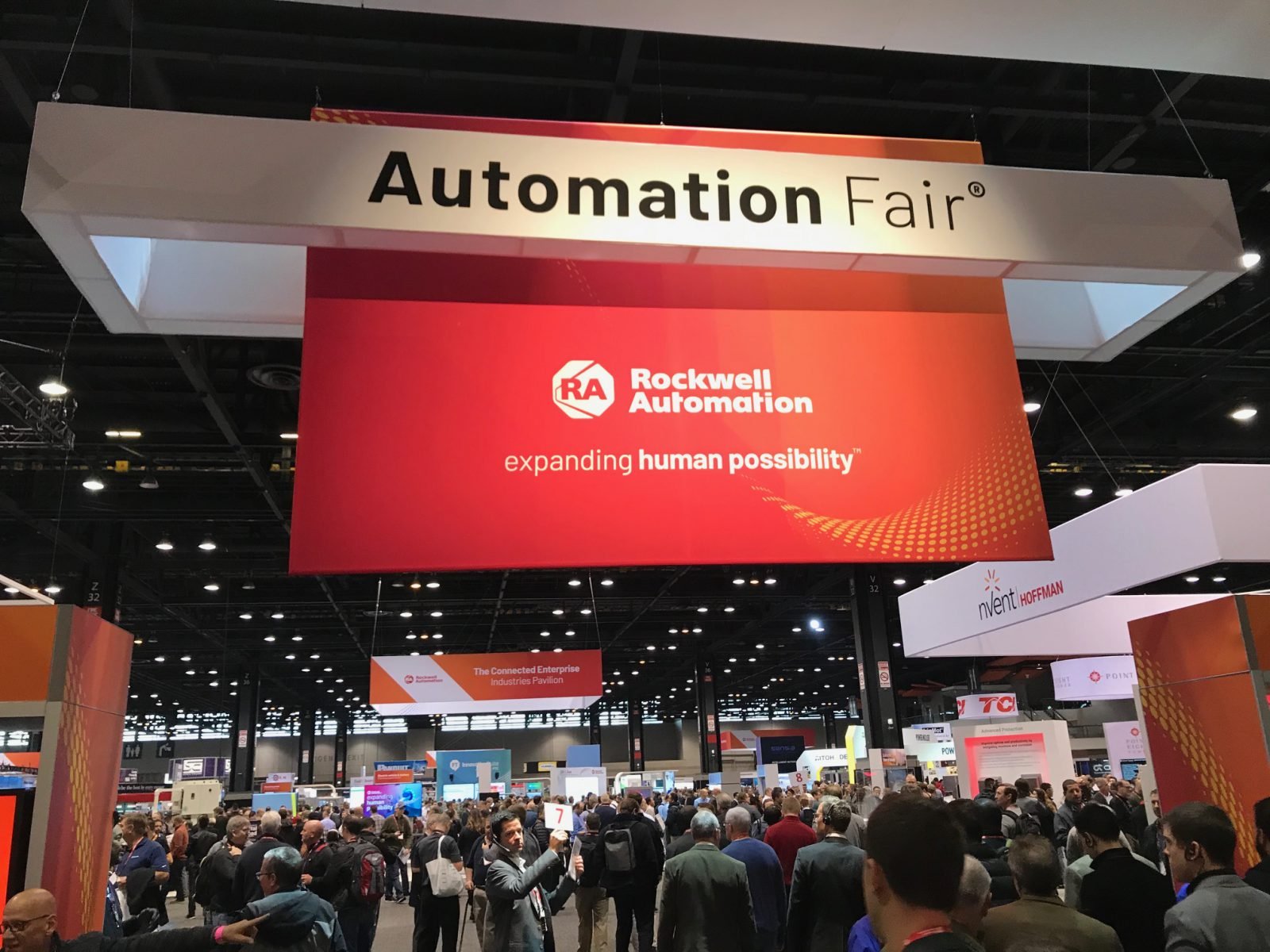By Lisa Chai, Senior Research Analyst, ROBO Global
At Rockwell Automation’s annual Investor Conference and Automation Fair last month, it was clear that two things are driving the company’s strategy moving forward: innovation and growth. A leader in automation control systems, the company offers software and equipment for manufacturers to run their factories. Its solutions are used in a wide variety of industries such as automotive, electronics, consumer packaged goods, food & beverage, metals and mining, and other heavy industries. Most recently, Rockwell has extended its reach by adding software stacks to its offerings—a key differentiator in the factory automation space.
More than 19,000 industry professionals from around the world attended Rockwell’s flagship customer event, which featured more than 150 interactive exhibits and 95 technology-focused breakout sessions. With much of the content focused on the software side of the business, it was clear that software is now at the heart of Rockwell’s strategy, as well as a primary driver of profitability. Multiple speakers highlighted that while the shift to software is still in relatively early stages, software sales are already playing a role in increasing per-customer hardware spend. The company’s diverse partnership strategy was also evident, shining a spotlight on Rockwell’s desire to be seen as a leading industry innovator.
With $6.7B in projected sales for 2019, Rockwell, a bellwether member of ROBO Global’s Index since inception in 2013, has been a great investment in the past decade, with total shareholder return over 2x greater than that of the S&P 500 Index. Management highlighted at the Investor Conference that it expects the company to continue growing above market trends with market share gains in core platforms such as controllers, precision motion, and industrial networks. Double-digit growth in its information solutions and connected services divisions and M&A opportunities are also expected to be key contributors. The company believes that in order to reach double-digit EPS growth and its longer-term $9B revenue opportunity all of these drivers will need to be in play.
Partnering for innovation and growth
What sets today’s Rockwell apart from the ‘old’ Rockwell is having a technology-focused CEO, Blake Moret, who is focused on accelerating top-line growth through innovation and new revenue streams. Under Moret’s leadership, the company has heavily increased its focus on software offerings—many of which are enabled through close partnerships with leading innovators.
Major announcements at the event were all related to partnerships, including the formation of Rockwell’s new Digital Partner Program (boasting such key industry players as Accenture, ANSYS, and Microsoft) and the finalization of its joint venture with Schlumberger to create an oilfield automation solutions provider called Sensia.
The newly formed Sensia will design and manufacture sensors and measurement technology that feature intelligent automation. Representatives from both Rockwell and Schlumberger spoke at length about the oil and gas industry’s substantial need for increased productivity and digitization. Sensia aims to enable and accelerate an industry-wide shift from outdated legacy hardware systems to advanced automation solutions that drive efficiencies. According to the management team, the joint venture is nominally accretive to FY’21 earnings based on a limited contribution.
The company also announced progress and developments in its strategic partnership with Industrial IoT leader PTC—perhaps its most interesting and impactful partnership relationship. Rockwell’s $1B investment makes them the third-largest shareholder in PTC, and it is the company’s biggest investment to date in a non-acquired company. (It is also noteworthy that Moret sits on the board of directors at PTC.) PTC’s strong presence was evident throughout the conference—from customer presentations to integrated offerings that were highlighted at many booths on the expo floor. Customer presentations were filled with mentions of PTC’s CAD solutions and augmented reality (AR) tools for training and maintenance workflows. In multiple presentations, PTC’s ability to incorporate IOT devices was shared as a key decision driver when choosing Rockwell over its competitors.
It was also clear that not only has Rockwell made a distinct effort to fully integrate its offerings with PTC, but that its sales force and technical support teams have been trained extensively on all of PTC’s offerings. This was a marked difference since last year’s conference.
To buy or to sell, that is the question
In an industry that is ripe with M&A activity, it’s important to look at Rockwell’s recent history and its plans for the future. In late 2017, Moret, with the support of the board of directors, rejected a $29B takeover offer from Emerson Electric. Moret resisted Emerson’s attempt not only because of disagreements over price, but also because he believed that Rockwell’s industrial customers would be worse off under Emerson Electric because Rockwell’s existing products would no longer be available on a single platform and in one software environment.
Since the failed takeover attempt, Rockwell's traditional factory automation markets—automotive and consumer electronics—have shown signs of weakness. But, as promised, the company has been gradually increasing its footprint in process automation, largely via acquisitions, with the goal of emerging as a software-centric innovator in the factory automation. Moret reiterated several times at the conference that, as a result of these efforts, no company is better positioned to bring together the combined power of information technology (IT) and plant floor technology (OT).
Looking to the future, it seems very likely that Rockwell is one step closer to making a large acquisition of a software company rather than be acquired by another vendor. Could PTC be the target? PTC’s offerings appear to be the key to building out Rockwell’s software capabilities in Industrial IoT. It certainly begs the question.
Enabling the connected enterprise
Aside from the partnerships piece of the equation, if there was a single underlying theme of the Automation Fair, it was the power of the ‘connected enterprise’ and the role it plays in the factory of the future. Rockwell enables this concept by integrating controls and information across the enterprise to help industrial companies and their people to be more productive and sustainable.
Pfizer served as the poster-child for the connected enterprise, speaking about the comprehensive digital platform Rockwell created to enable data visualization for the drugmaker. FactoryTalk InnovationSuite, which is powered by Rockwell’s primary development partner, PTC, uses augmented reality (AR) to support real-time decision making by its employees. Pfizer is also using Rockwell’s analytics and machine learning platform for predictive maintenance to help improve its drug supply chain and increase production yields in a secure environment. It was an ideal example of what’s possible in a truly connected enterprise.
As companies look for a smart, connected and automated environment, Rockwell may prove to be the most innovative solution for enabling the next stage of digital transformation. In addition, Rockwell’s open architecture allows its customers to invest and innovate at best-in-class levels by giving them the flexibility to choose from a quickly evolving menu of offerings rather than relying on a single, stagnant platform. Whether Rockwell chooses to increase its investment into PTC or invest in another software vendor, the company appears to be poised for success as a leader in factory automation innovation.

